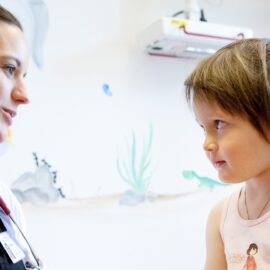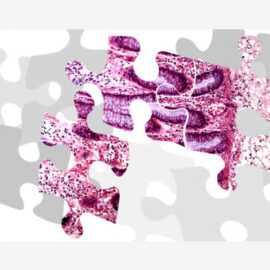
We show the scientist in the research building Kubus of the Comprehensive Childhood Research Center and introduce our current fellows:
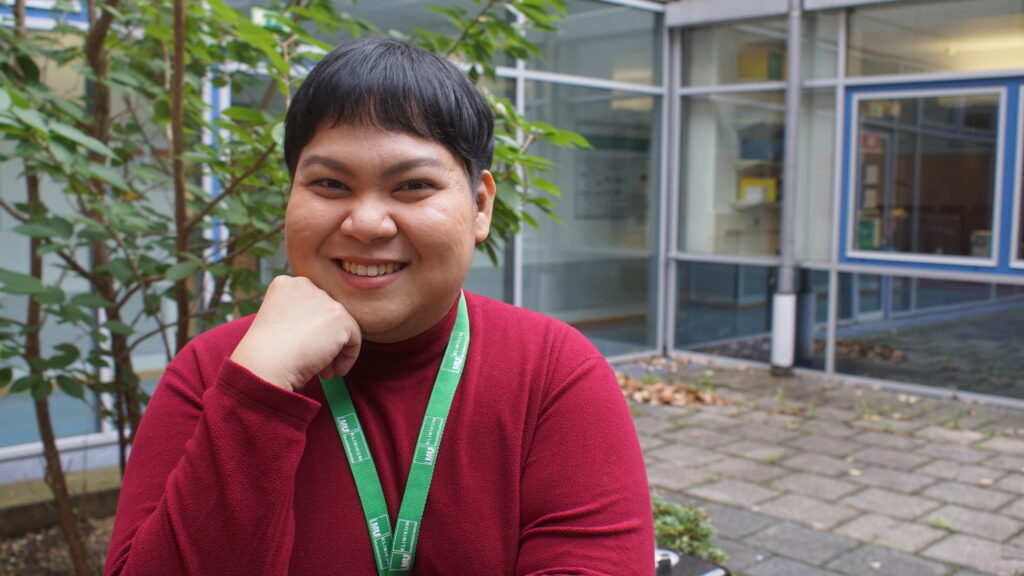
Chonlatis Srichumpuang from Chulalongkorn University in Bangkok specializes in haemophilia and congenital blood clotting disorders (thrombophilia), which can lead to strokes in infants. In addition to his research project, he is continuing his clinical training in hematology at the Dr. von Hauner Children’s Hospital.
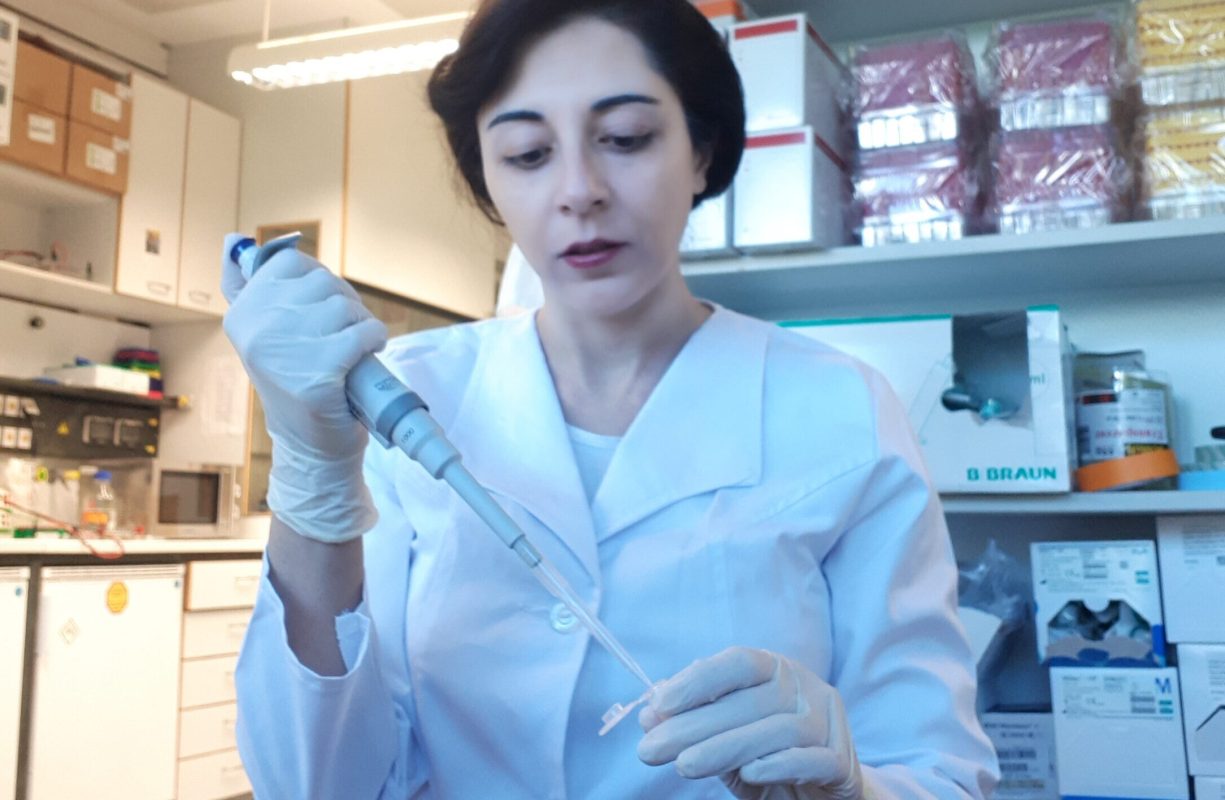
Berokh Shojaie works in Prof. Klein’s research group on rare inborn errors of immunity (IEI), which are caused by genetic defects in various parts of the immune system. Such immunodeficiencies impair the body’s defense function against pathogens, including viruses, bacteria, fungi and parasites. Specifically, she is investigating the genetic mutations and molecular mechanisms that play a role in three patients who have a high clinical manifestation of two antibodies, immunoglobulin M (IgM) or immunoglobulin E (IgE). They are therefore very susceptible to infections. In addition to analyzing genetics, multi-omics-based approaches are used to understand the complex causes of disease in these patients. In one patient, a previously unknown gene mutation was identified. Berokh’s research project is an example of how the treatment of individual patients can benefit basic research.
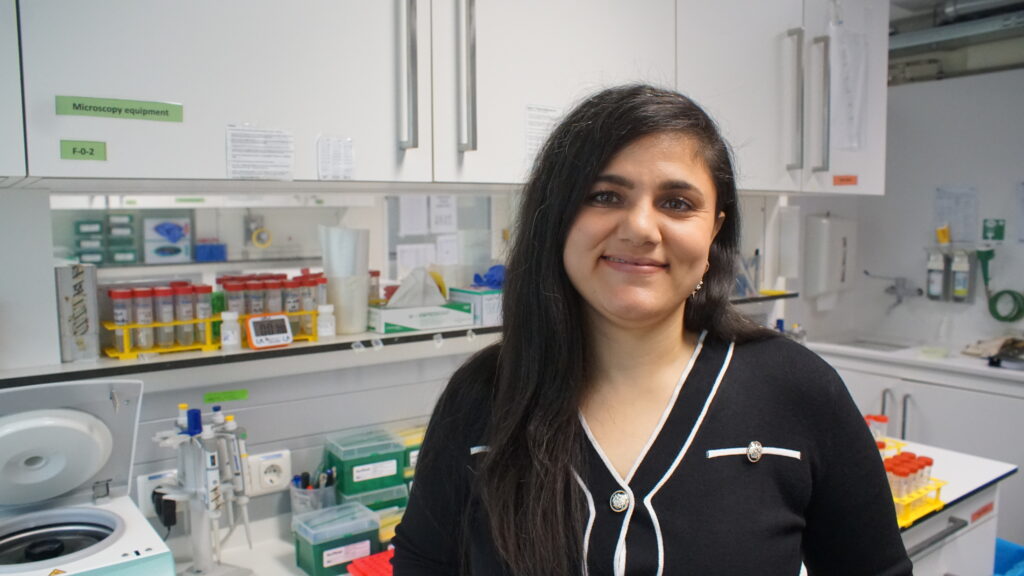
Our scholarship holder Leyla Atac is working on three projects in the field of chronic inflammatory bowel diseases that occur very early in children (VEOIBD). The Turkish scientist is working with patients from Turkey, Iran, Germany, Poland and Egypt. She specializes in the severe wounds that occur as a result of these diseases. She is looking for new methods to improve wound healing and is reconstructing the patients’ wounds in the laboratory using pluripotent stem cells. The mutated cells are compared with healthy ones and attacked with cytokines to find out how the wound healing responds. During her research stay, Leyla learned to use many modern methods such as CRISPR/CAS9 or flow cytometry (FACS), which are not available at her home university in Turkey.
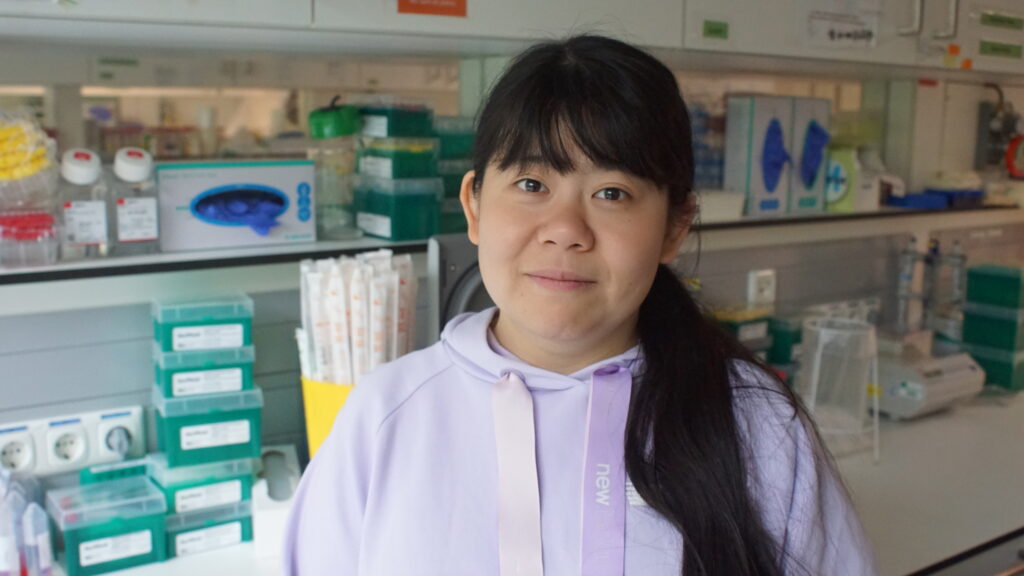
After studying molecular medicine at the University of Dublin, Xiang Shen initially worked in China for a company that carries out genome sequencing. It was here that she came into contact with rare genetic diseases in children. She experienced the suffering caused when a child and its parents cannot be offered an accurate diagnosis or treatment. This motivated her to work at the Hauner Comprehensive Childhood Research Center (CCRC Hauner) on research into unknown gene variants that cause chronic inflammatory bowel disease in children. She has now been working in Munich for four years and is completing the PhD program.
Part of her project involves testing innovative therapeutic strategies on cell cultures and organoids. She benefits above all from the fact that not only individual cells can be studied here, but also the disease mechanisms can be researched in three-dimensional complex models of the damaged intestines of the affected children.
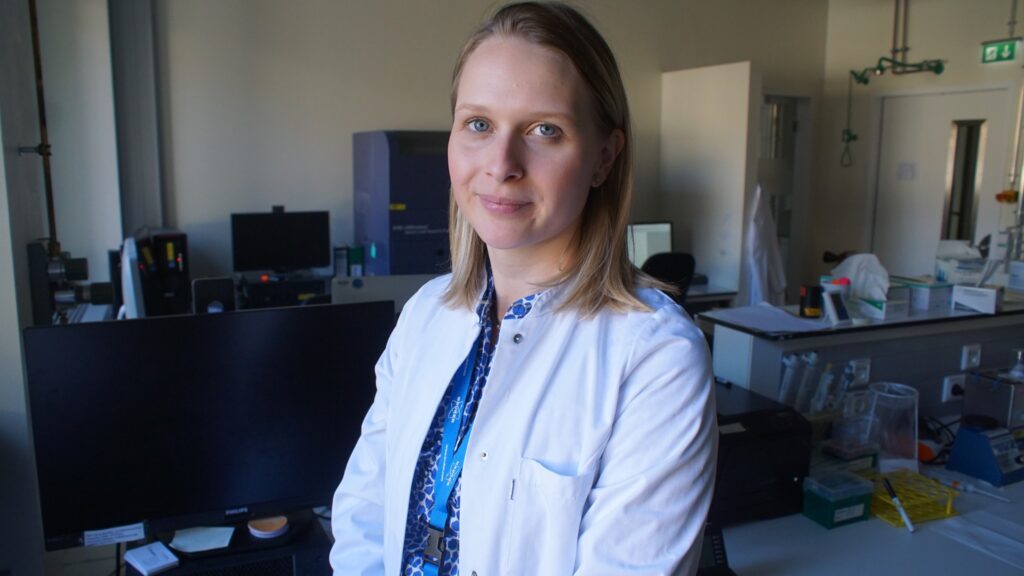
Enisa Smlatic has a doctorate in pharmacy and comes from Belgium. She is working on the development of experimental antibodies that can be used to treat children whose immune system doesn’t function properly for genetic reasons and who are therefore affected by recurring infections. This involves comparing blood cells from patients who have survived such infections with those of immunocompromised children in order to draw conclusions for antibody therapy.

